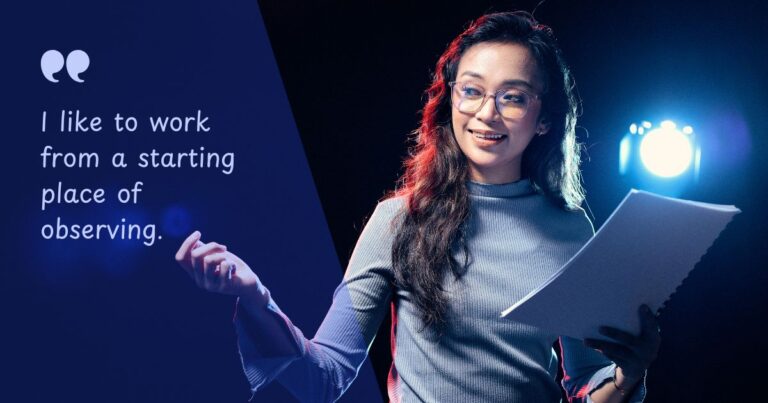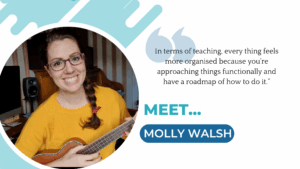Do you need to master a specific accent for a musical theatre role? Try this tip that a top dialect coach swears by.
⏱ 2 Minute Read
Congratulations, you’ve just landed a role in an iconic musical.
Now you face the challenge of trying to master an accent that’s completely different to your own.
Perhaps you need to sound like a Cockney urchin for a role in Oliver! or maybe a streetwise New Yorker for Guys and Dolls.
Where do you start?
Devoting all your time to listening to your ‘target accent’ may seem like the most obvious thing to do.
But Louisa Morgan, Spoken Voice Lead at the Voice Study Centre, has a different but very useful suggestion.
She recommends observing what you see.
On the Singing Teachers Talk podcast, Louisa discusses the importance of paying close attention to ‘oral posture’ – a term explored in depth by voice and dialect experts Dudley Knight and Philip Thompson.
This is because we can gain valuable insights into how to create specific accents by observing how people use their lips, mouth, and jaw.
“I like to work from a starting place of observing,” Louisa says.
Start with YouTube
Vocal and dialect coach Louisa’s first port of call when researching an accent is YouTube.
“I search for news reports from local news stations [relevant to the target accent] because what you usually get are clips of people speaking in a way that is completely unconscious,” she says.
“I’ll get video clips of local regional news. I find that super helpful and save loads and loads of those.”
Be aware that watching clips of just one person speaking with the relevant accent isn’t sufficient.
You want to observe several people with the same accent to look for common traits.
“If we’re seeing commonalities across different speakers, then we can start to say ‘Okay, this oral posture seems to be a feature of that accent’.
“That’s really useful, and that can hook us in really quickly to that accent.”
What to look for
Once she’s found a selection of relevant clips, Louisa then watches them closely with the sound turned down.
Without the distraction of audio, she looks for visual clues.
“Are we seeing the same sort of jaw movement or lip movement? What are they doing? Are they pulling the corners of their lips down? Are they lifting them up? Are we seeing any kind of clenching anywhere?”
Other considerations
There is a wealth of information available for singers and singing teachers who wish to know more about mastering accents and dialects.
For an informative and fascinating taster on what’s involved, listen to the podcast where Louisa also discusses:
- Why people find some accents more challenging than others.
- Reasons why speaking or singing in an accent different to your own can be so tiring.
- Ethical considerations around learning an accent.
- What challenges a performer faces when carrying an accent over from dialogue to singing in character.
- Useful reading resources on mastering accents.




